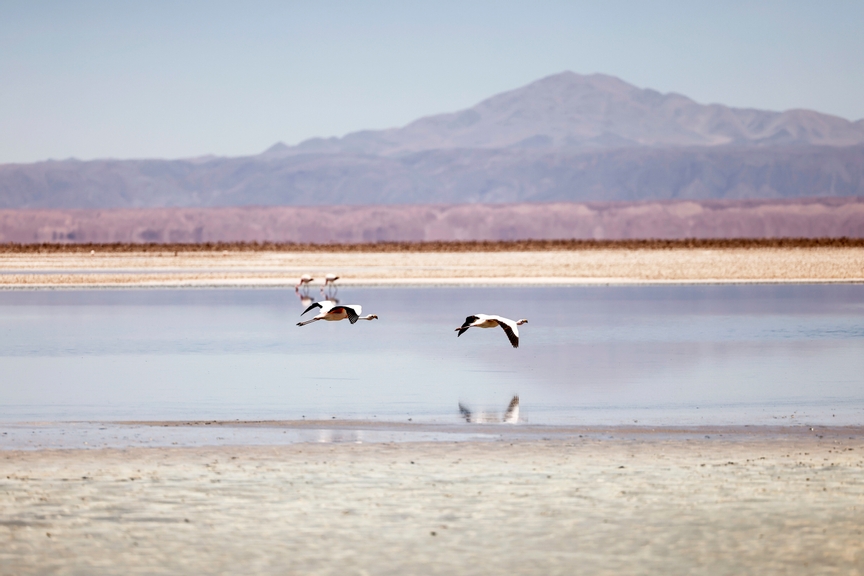Spearheaded by Professor Carlos Duarte, Head of Extreme E’s Scientific Committee, the project will revolve around highlighting issues threatening the precious biodiversity in the region, with a dedicated project to help safeguard the vulnerable flamingo population.
The Atacama Desert stands as one of the driest places globally, receiving less than 2mm of rainfall annually. Despite this, flamingos still manage to thrive in this region. However, their numbers are slowly dwindling, putting this keystone species at risk of extinction.

The well-being of flamingos acts as a barometer for the broader picture of biodiversity in the region. Rising average temperatures in the area pose a threat, potentially causing the breakdown of ecosystems as even resilient plants and animals struggle to thrive here.
The health of this crucial species may provide invaluable information about the health of the food chain, the fresh water availability and general ecosystem.
Extreme E is teaming up with non-for-profit global rangers’ network, Force For Nature, and government environmental protection agency, CONAF (‘Corporacion Nacional Forestal’), in a legacy programme that focuses on the conservation of flamingo in the region, namely the Andean, Chilean, and James varieties.

The series’ latest initiative in Chile aims to support the local Flamingo monitoring programme at Los Flamencos National Reserve, Atacama.This reserve is the only one in Chile that is co-managed by CONAF and the indigenous community of Toconao.
Moreover, in Force For Nature, Extreme E has a Legacy Programme partner which advocates similarly for gender equality, hand-in-hand with the series’ core vaues. Force For Nature’s efforts to create better pathways for women rangers are ensuring greater opportunities for women to work in the nature reserve.

Extreme E teams and drivers assisted in the delivery of important equipment such as high-resolution binoculars and monoculars to support the rangers with their crucial work in environmental conservation.
AI software equipment and training was also provided so that local experts can better monitor the flamingo flocks – particularly the birds that are ringed – and therefore design behaviour mitigations. Extreme E’s drivers and partners participated in the early stage of this work, providing a foundation which the rangers will build on once the series has left the country.
Molly Taylor, Veloce Racing, said: “It has been really interesting to learn more about the rangers, not just in Chile but across the world that work on sustainability-focused projects on the ground.
“The rangers are heavily involved in these projects on a day-to-day basis, so it has been fascinating to get their insights on the important work they are undertaking here and how we can learn from them.”

In addition, Extreme E personnel helped to repair the tourist walking trails and signage at the reserve, as well as collect litter – as visitors have a huge impact on this precious yet vulnerable region.
There was also a visit to the ancient village of Toconao to engage with the local community and learn about life there.
The indigenous people of the Tocanao have a deep understanding and dependence around the biodiversity and health of the region. Not only do many of them work as rangers in the flamingo reserve, but they have thrived on the oasis lands here for over 12,000 years.
